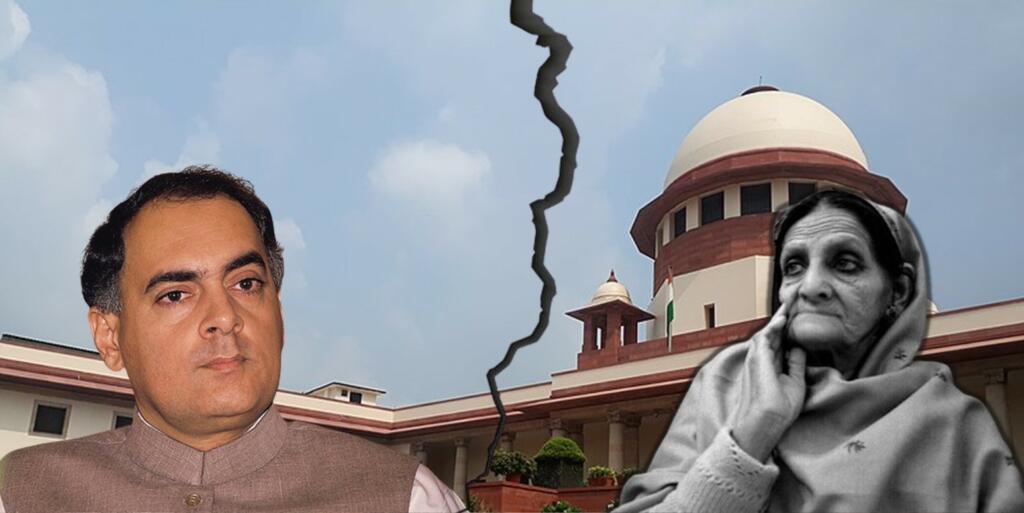There is a reason the Judiciary is important for proper functioning of any democracy. Majority often turns into absolute majority, compromising the interest of the common people. No one understands it better than people involved in the Rajiv Gandhi Cabinet. They watched him mock the Indian Judiciary from close quarters.
Shah Bano Case
In 1975, a 62-year-old woman named Shah Bano was disowned by her lawyer husband named Mohd Ahmed Khan. She wanted maintenance and Khan was not willing to give even Rs 500 per month to her. To avoid his responsibility, Khan gave her triple talak. Divorce did not absolve him from maintenance responsibility though and the MP High Court ordered him to pay Rs 179 per month to Shah Bano. Khan challenged the decision in the Supreme Court.
Main issues involved were conflict between maintenance provisions of Muslim Personal Law and Section 125 of CrPC. Confusion prevailed on even the definition of basic terms like wife, Mahr or dower. Additionally, it was also required to be checked whether CrPC overrides personal law or not.
Defined wife
Court first defined wife for Section 125(1). Shah Bano’s husband had given divorce to her as after divorce, Muslim men were freed from maintenance. The Apex Court shunned any chances. Reading Section 125, it held that the religion of the parties in question has no bearing on provisions. This principle was held as an axiom since CrPC is not an individual community law. Therefore, the definition of wife for the section includes divorced Muslim women too.
The Apex Court traced down the roots of evolution of Section 125. Earlier provisions of Section 125 were part of Section 488. The universal applicability of the aforementioned section was held in the Jagir Kaur and Nanak Chand cases
CrPC over personal laws
Then, there was the question of sorting out conflicts in Muslim personal law and CrPC provision. Khan argued that being a Muslim man, he was obliged to provide maintenance only till the time period of Iddat. To solve the problem, the Apex Court delved deep into Quranic texts. The English version of Muhammad Zafarullah Khan’s ‘The Quran’ was taken as a reference point. Aiyats 241 and 242 of the holy books were found to be in consonance with Section 125 of CrPC.
The next question was to see whether Section 127 (3)(b) enables the dismissal of maintenance petition under Section 125. Section 127 provides for cancellation of order under 125 if the wife gets a whole of the sum payable under personal laws of divorce. Ultimately, it came down to check whether Mahr is the only amount payable to the wife.
Now, Mahr is divided into two parts. “Prompt”, which is payable on demand and “deferred”, which is payable at the time of dissolution of marriage. Additionally, it was argued that the husband gives Mahr as a sign of respect to wife.
The Apex Court refused to accept divorce and dissolution in the same vein. Its reasoning was that if Mahr is given as a sign of respect and that too at the time of divorce, it is counterintuitive. Divorce is documentation of bitter emotions on paper and not a sign of respect by any person. In Court’s words, “he does not divorce her as a mark of respect. Therefore, a sum payable to the wife out of respect cannot be a sum payable ‘on divorce’.”
Khan’s petition was ultimately dismissed and Muslim women’s equal rights were established. In other words, the Apex Court had set the ball rolling for modification of personal laws not in consonance with Constitutional principles.
Also Read: Swapnil Tiwari Vs Union of India: The case which began Live Proceedings
Indian Judiciary: Rajiv Gandhi overturned it
This is what became the reason behind it turning into a national issue. Louder section of Muslim society came out against the judgement. They interpreted it as an attack on their religion. Ultimately, in 1986, Rajiv Gandhi government passed Muslim Women (Protection of Rights on Divorce) Act, 1986. It nullified the Court’s judgement and provided for maintenance to a divorced Muslim woman only during the period of Iddat.
Effective overturning of Shah Bano judgement is still cited as epitome of bending of rules for appeasement politics. The Act only widened the trust deficit between legislature and Indian Judiciary, something which is still prevalent.
Support TFI:
Support us to strengthen the ‘Right’ ideology of cultural nationalism by purchasing the best quality garments from TFI-STORE.COM
Also Watch:
https://www.youtube.com/watch?v=Pr3UiS3cBsc
